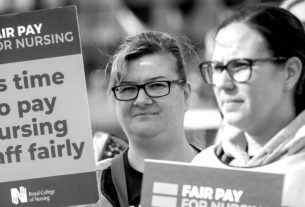The pound has tumbled as fears of a no-deal Brexit resurfaced wiping out the gains made following Boris Johnson’s comprehensive election victory.
Sterling plummeted more than 1.5% against both the dollar and euro after the prime minister announced an amendment to the Withdrawal Agreement Bill (WAB) outlawing any extension to the transition period beyond the end of 2020.
Markets were similarly spooked by the prospect of no-deal being put firmly back on the table with the FTSE 250 falling 1.2% as the pound sank back to pre-election levels, taking gains made by the index of medium sized British companies with it.
Chance of trade agreement in 11 months is ‘rather fancicul’
Johnson’s WAB amendment will give the government just eleven months to negotiate a trade deal with the EU with the UK set to officially leave on January 31. Should no agreement be reached, the new clause will force the UK to crash out-on World Trade Organisation terms on New Year’s Day 2021, the day after the end of the transition period during which the UK will continue to follow EU rules.
The likelihood of the government being to agree a trade deal in such a short period of time was described as “rather fanciful” by Seema Shah, chief strategist at Principal Global Investors. “We have not only struggled with this conversation for more than three years, but no two major countries have ever achieved a trade deal in under three years,” said Shah.
The news has revived “uncertainty for both exporters and importers doing business with the trading bloc”, according to The Wall Street Journal who reported sterling’s fall as “its steepest decline in more than a year”, while the FTSE 250 – which hit record highs on Friday – saw its biggest drop since October 3.
Banks and builders fall
Some of the sectors that surged with sterling last week have fallen back with housebuilders and banks seeing their values fall. Shares in Barratt Development were down 3.4% and Taylor Wimpey fell 2% while Lloyds dropped 4% and the Royal Bank of Scotland slipped 3%.
“The party was good while it lasted,” surmised AJ Bell’s investment director, Russ Mould. “The impact of this news is that many stocks are giving up some of their earlier post-general gains, including various banks and housebuilders.”
Mould described the situation as a “reality check” for investors, adding: “The message is that the UK equities are not guaranteed to stay in the fast lane despite recent gains.”
Fears for workers’ rights
The government also announced that provisions for the protection for workers rights will not form part of the WAB and instead be provided for in separate legislation. The news sparked further fears that workers’ protections will be watered down but Downing Street denied this.




